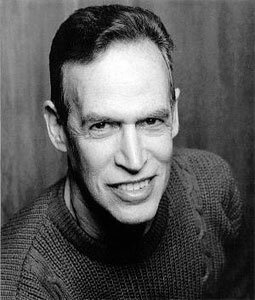MOVIE REVIEW- Let it be: Sinclair's ‘Oil' spills onto the screen

Ever the chameleon, Daniel Day-Lewis disappears into another character and gives arguably his best performance yet in There Will Be Blood, a powerful drama about the early days of the American oil industry.
Unless you count Boogie Nights, which went back a few years, this is the first period piece for writer-director Paul Thomas Anderson, whose work might be termed divinely inspired if the film's content didn't make that a potential negative.
Loosely based on Upton Sinclair's novel Oil!, which may still be read in lit classes where the syllabus hasn't changed in 50 years, the film gives us total immersion in its times and places. It begins in 1898 when a grizzled miner, Daniel Plainview (Day-Lewis), finds some silver, almost killing himself in the process.
He earns enough to expand his operation, with a few men working for him digging for oil as he envisions going high-tech with drilling apparatus. As the song says, "Out o' the ground come a-bubblin' crude– oil, that is." Suddenly Daniel's got a good business going, talking farmers into leasing him their land for a small fraction of the money he stands to make from it.
Daniel hits a motherlode on a tip from Paul Sunday (Paul Dano), who thinks there's a lot of oil under his father's goat farm. Oh, and Standard Oil is buying up land to the North of them. Oddly, Paul is never seen again, though he's referred to later. At the Sunday home, Daniel meets Paul's father, Abel (David Willis), brother Eli (also Dano) and the rest of the family.
Soon Daniel's drilling all over the area and planning to build a 100-mile pipeline to get the oil to the sea, rather than pay the railroad to ship it. He gives lip service to Eli's Church of the Third Revelation but refuses to pay them the $5000 he promised as part of the deal for the Sunday land.
This is the start of an ongoing battle between Daniel's business and Eli's church, one of the film's central conflicts. The other is between Daniel Plainview and humanity. He confesses to Henry (Kevin J. O'Connor), who claims to be his half-brother and becomes his confidante, "I have a competition in me. I want no one else to succeed. I hate most people."
Even Daniel's son, H.W. (Dillon Freasier), who helps him display his family values to the farmers, ceases to be of use to him after losing his hearing in an accident. Daniel cruelly abandons him.
To put it simply, more money doesn't make Daniel a better person. The final act takes place in 1927, when he has everything he ever wanted except a capacity for enjoying it.
Seeing There Will Be Blood, you're less likely to say, "Oh, another Paul Thomas Anderson movie" than "Who's the new guy?" Telling an intimate story against a broad canvas (mostly filmed around Marfa, Texas, home of Giant and parts of No Country for Old Men), he shows a new maturity and an ungimmicky (i.e., no frogs) mastery of the medium.
Probably the most controversial aspect of the film will be the score by Radiohead's Jonny Greenwood. Played mostly by a string quartet, it screeches and thumps to unnerving effect, but is sometimes just too overpowering.
Daniel Day-Lewis is the man to beat in the Best Actor race. Playing a man who's acting most of the time gives him considerable opportunity to act. His voice, soothing but firm, is a combination of Sean Connery and Jack Palance. Paul Dano positions himself as the next Edward Norton.
It's ironic, from our perspective, to see this microcosmic clash between the oil industry and the Pentecostal church, now two bastions of the Republican Party. There Will Be Blood isn't out for irony, or even blood. It just wants to tell a good story, and it succeeds magnificently.
#